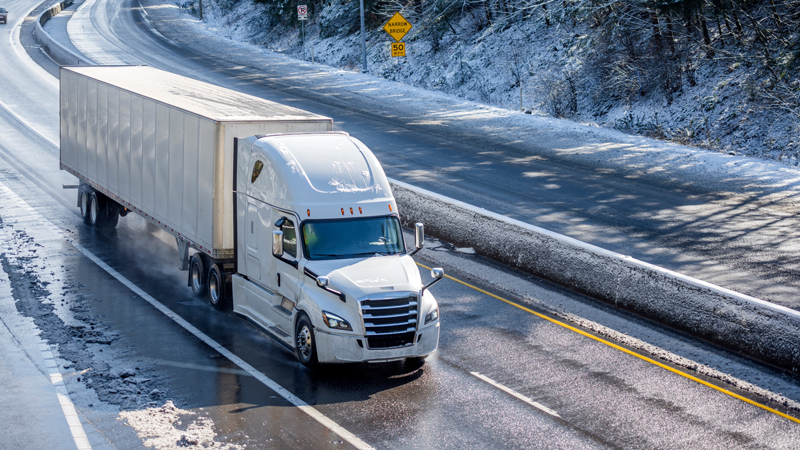Being prepared during cold weather is extremely important for long haul drivers. Although you may be worried about many of the little things needed for those extended driving trips, the most crucial part is keeping your vehicle running smoothly, especially during the winter. Let’s review winter maintenance for your vehicle.
Regular and careful maintenance of your vehicle is the easiest way to ensure you are prepared. The timeliness and success of your trip will depend on an on-time arrival, so making sure your vehicle is sound from start to finish is essential.
Let’s look at some areas that require careful inspection and preparation during these colder months.
Check the Tires
Never start a long haul trip without checking if your tires can endure the journey. Remember that tire pressure is affected due to fluctuations in temperature. The correct tire pressure will help to ensure your safety on snowy and icy roads. Keep close track of the wear and tear of the tread daily, and make sure to check inflation levels regularly.
Replace your tires as necessary to avoid a potential delay later or even an accident.
Monitor the Engine Oil
Make sure your engine oil levels are in the correct range when you perform winter maintenance and before beginning a trip. Using high-quality, heavy-duty oil is necessary for driving through colder temperatures, so make sure you are protecting your engine with the best. Low temperatures lower the oil’s viscosity. This can harm both the performance and life of engine components, so using quality oil will save money and time in the long run.
Test the Battery
Having a battery that works optimally makes a big difference during winter. The cold weather will affect your battery performance so ensure it has sufficient charge and is in good working order. Also, remember to check your alternator and charging system to ensure they are performing correctly. As a rule of thumb, long haul drivers should consider replacing their battery every three years or so.
Check Your Fuel System
Diesel fuel can gel in extremely cold temperatures, so take extra precautions to prevent this. Consider using winter-grade diesel fuel or adding non-gel additives to your system. Check your fuel filters regularly and always keep your tank at least half full during periods of colder weather.
Inspect Your Lighting System
Having all your lights working is especially important during the colder winter nights due to the shorter daylight hours. Check all exterior and interior lights as well as terminals frequently. Ensure you replace any parts that may have stopped working immediately. Visibility is especially important on icy, mountainous roads, so make this a high priority.
Check Cooling and Antifreeze Systems
Check that your anti-freeze system is sufficient for keeping your engine running at the right temperature. Remember to also check the hoses, clamps, and radiator for any leakage and repair as needed. Parts within the engine can expand and contract with sudden changes in temperature, so this is crucial when stopping overnight during winter.
Have an Emergency Kit
Winter maintenance for your vehicle also includes preparing for any unforeseen emergencies. The best way to protect yourself and your vehicle is by carrying these items with you:
- Jumper cables
- Flashlight and batteries
- First aid kit
- Snacks and water
- Thermal blanket
- Extra warm clothing
- Snow shovel
- Sand or kitty litter for traction
- Portable phone charger
Classic Transport
Classic Transport offers several programs for drivers that involve cross-country and long-distance delivery routes. Candidates can enjoy flexible hours, competitive pay, and the freedom to select the routes that work best for them. If you are looking for a new career that involves driving, check out Classic Transport’s website. See if you qualify to start your new career and travel North America at the same time.


Leave a Reply